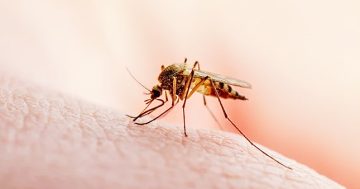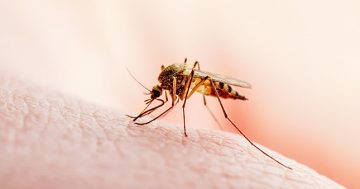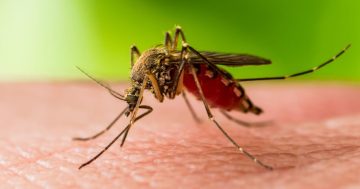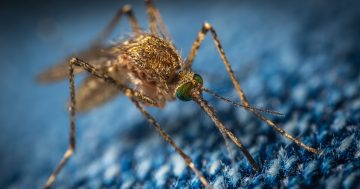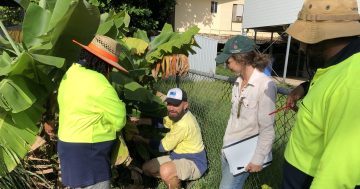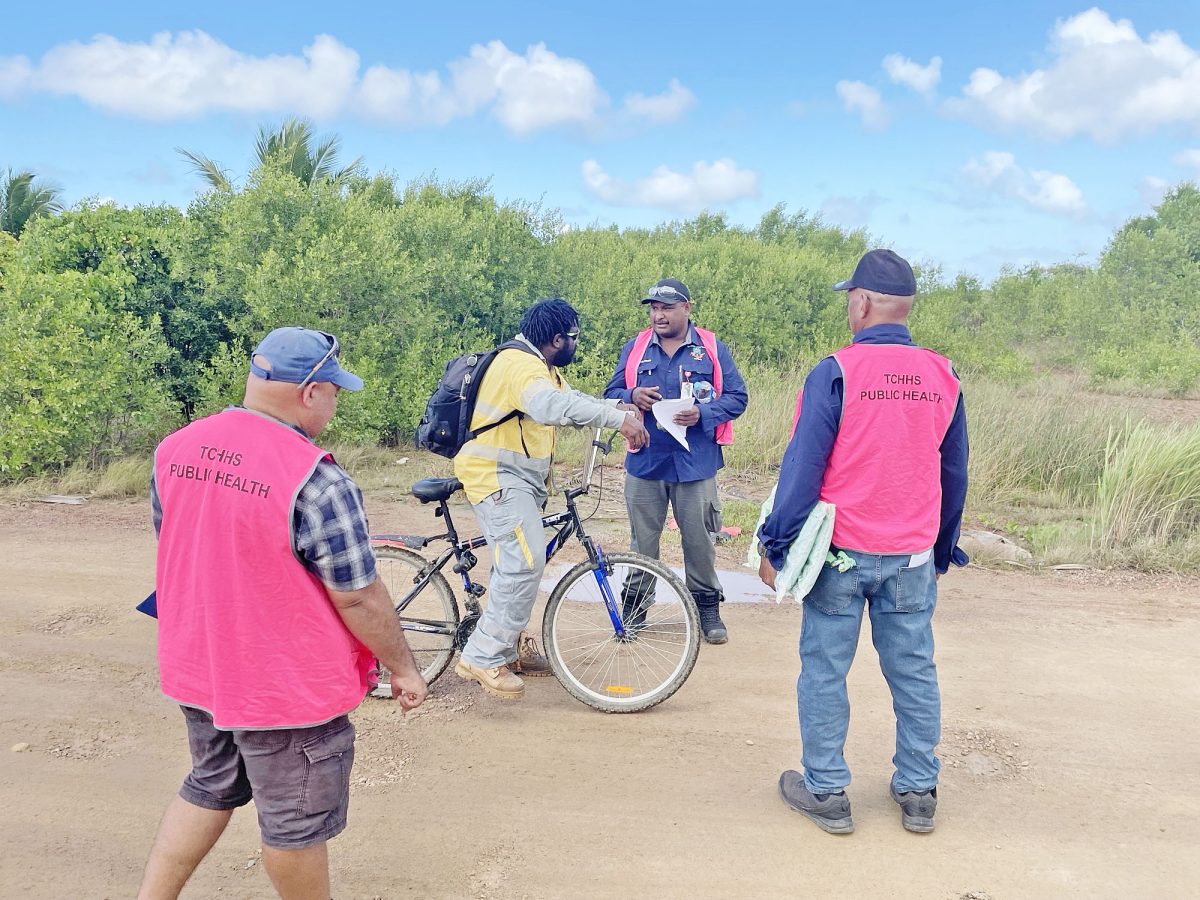
Torres Strait Island Regional Council environmental health workers Ezra Kris from St Paul’s community on Moa Island and Jacob Akiba from Saibai Island join TSIRC senior cluster supervisor Dawson Mau from Dauan Island to talk to a passing Saibai resident as they carry out vector control and information and awareness work on the island.
THREE cases of malaria have been detected on Saibai Island in the Torres Strait, following a case on Boigu Island earlier this month.
These are the first cases of malaria detected in the Torres Strait since 2013, when two cases were detected on Saibai.
Dr Allison Hempenstall, the public health medical officer for Torres and Cape Hospital and Health Service, said both the Boigu and the Saibai cases were being managed appropriately.
“It’s been a great joint effort between the Torres and Cape HHS Public Health Unit, the Tropical Public Health Service in Cairns, our staff at the Boigu and Saibai primary health care centres, and the Torres Strait Island Regional Council to respond to these cases,” she said.
“I’d like to thank all the teams involved for their ongoing work. The community should be aware that malaria is treatable and there is no cause for community alarm.
“Malaria is a mosquito-borne disease and is not transmitted from person to person. It is spread to people by the bite of particular types of mosquitoes.
“Residents of Boigu, Saibai, and all Torres Strait islands should be on alert for symptoms of malaria and take measures to prevent being bitten by mosquitoes.”
Dr Hempenstall said the most common symptoms of malaria were high fever, headache, backache, nausea, vomiting, and muscle and joint pains.
“If anyone exhibits any of these symptoms, they should present immediately to their local primary healthcare centre,” she said.
“The very best protection against mosquito-borne diseases of any kind is to avoid being bitten by mosquitoes in the first place.”
Mosquito spraying and control measures have been undertaken on both Boigu and Saibai islands, as well as door-to-door screening for symptoms.
Personal protective measures include:
- Wear light-coloured clothing, (long-sleeved shirts and long pants wherever possible to cover exposed skin).
- Use personal insect repellent containing DEET (di-ethyl toluamide) or Picaridin. DEET and Picaridin are safe for use by pregnant women. Always follow the manufacturer’s directions. Repellents usually only protect against mosquito bites for up to four hours.
- Use long-lasting ‘surface’ or ‘cockroach’ insecticide spray in places where mosquitoes can hide.
- Use other mosquito protection devices such as electric zappers and mosquito coils.
- Install insect screens that are in good working order in your home and office. If not, sleep under a mosquito net day and night.
- Tip it, store it, throw it — tip out water from containers weekly, or dry store containers under cover and discard rubbish properly. Mosquitoes breed in containers that hold water. Remember, under the Public Health Act 2005, you can be fined by your local council if your home or yard promotes the breeding of mosquitoes.
“If you follow these simple instructions, you can minimise substantially the risk of being bitten and infected with a mosquito-borne virus,” Dr Hempenstall said.
“As a result of the recent cases, individuals on Boigu and Saibai islands, or travelling to the islands, also are recommended to take appropriate medication to prevent malaria and should discuss their individual circumstances with their local health care provider.”


